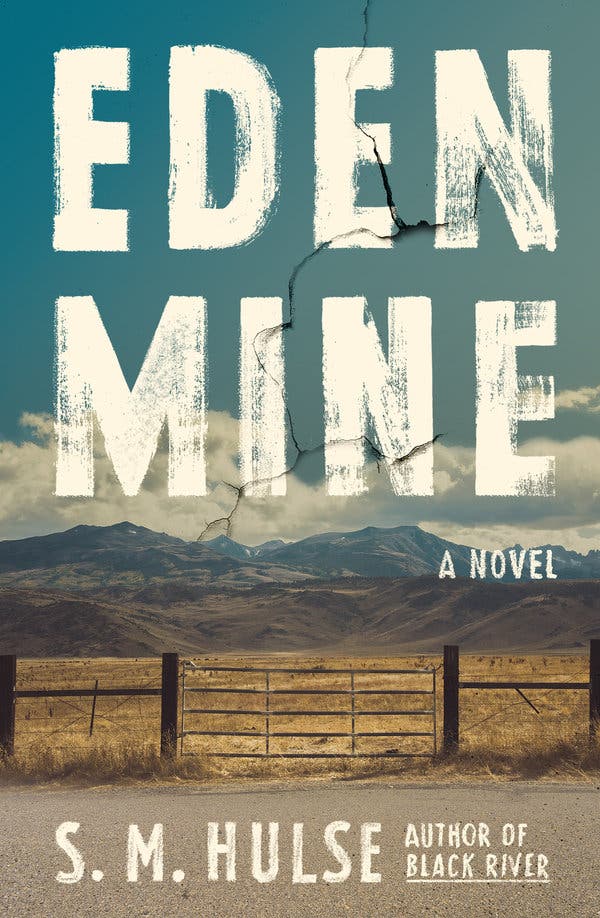EDEN MINE
By S. M. Hulse
A book can be carried by a strong voice, and that’s what we get with Jo Faber. A gifted amateur artist in the town of Prospect, in rural northwestern Montana, the narrator of S. M. Hulse’s second novel, “Eden Mine,” is anchored by her brother, Samuel, who is seven years older and the only family she has left. Their father died in a mine collapse before Jo was old enough to remember him, and their mother was murdered by an alcoholic ex-boyfriend when Jo was 10. Now 22, Jo is in a wheelchair, paralyzed from the waist down by a stray bullet on the night of her mother’s murder, and somehow, “Eden Mine” starts with even more bloodshed: Samuel has set off a bomb outside the county courthouse.
Jo processes her brother’s act as “a strangely futile gesture, a particularly violent tantrum,” designed to protest the government’s seizure of their childhood home, on land their family has owned for five generations, to build a new road. Samuel sets the bomb off on a Sunday morning in an ill-conceived attempt to avoid casualties; he doesn’t know about the new church across the street from the courthouse. Several members of the congregation are injured, the preacher’s young daughter is left in a coma and, with Samuel in hiding, Jo is left to face the consequences.

The novel shines when Jo inadvertently strikes up an odd friendship with the preacher, Asa Truth. Asa wants to understand what made Samuel commit an act of terrorism, and in their time together Jo begins to realize she doesn’t know her brother as well as she thought. It’s not that what Samuel did truly surprises Jo; he’s always been drawn to extremism, always “deeply troubled … searching for meaning in dangerous places.” But he was also devoted to Jo; to take one example, he trained their mule to accept a paralyzed rider so she could ride him by herself. After they are orphaned, he goes so far as to rescue her from foster care by spiriting her into the mountains. “I remember the worry,” she thinks now. “What if … they sent me to foster care anyway, kept me away from Samuel forever?”
Hulse works with a tight cast of characters; besides the siblings and the pastor, there’s really just Sheriff Hawkins, who functions as a surrogate father. (“You here as a sheriff or a friend?” she asks him after the bomb explodes. “I don’t know, Jo,” he replies. “Both, I guess. I wanted to make sure you were O.K.”) So Samuel’s overwhelming absence comes at a cost: For the focal figure in a mystery of how a lost boy grows into a dangerous man, Samuel as a character is surprisingly thin and uneven. At times Hulse softens his extremism, as if his anger is too much for the reader to bear, the Nazi flag on his bedroom wall and swastika tattoo part of “an identity Samuel tried on and almost immediately discarded, his racist phase brief but committed.” Hatred flows like water, forming itself into whatever vessel it’s provided, but Samuel’s shape constantly changes. Jo’s (heavy-handed) attempts to use her art to moralize and explain evil can’t excuse that.
Hulse’s talent is evidenced by her nuanced portrayal of Jo and the way she sees the world. In her relationship with Asa, in particular — both are scarred, both trying to heal — Hulse (whose debut, “Black River,” also featured a traumatized protagonist in Montana) perfectly captures not only the landscape of the American West, but also what it feels like to survive in a town that is dying.
 EU News Digest Latest News & Updates
EU News Digest Latest News & Updates



